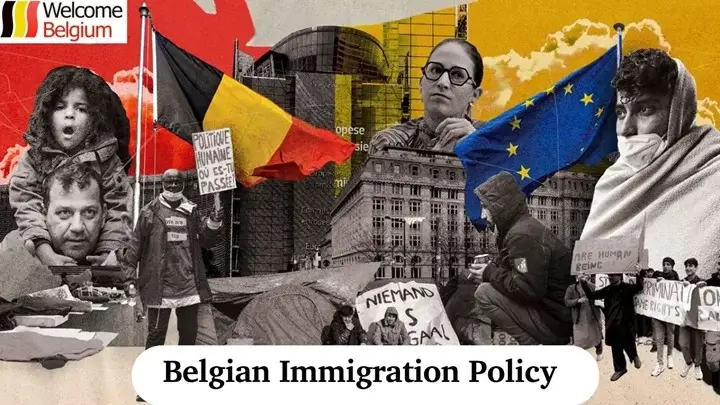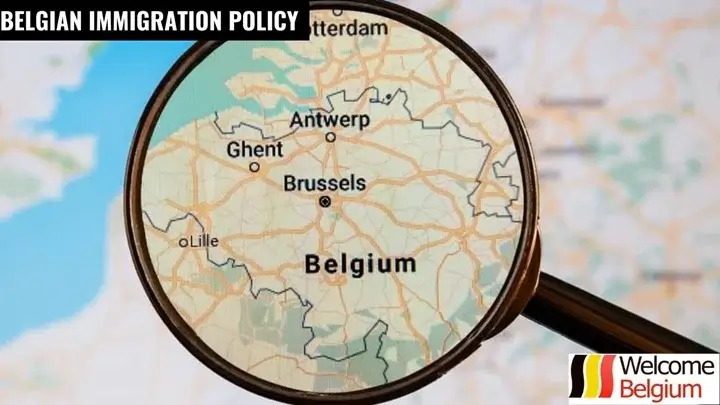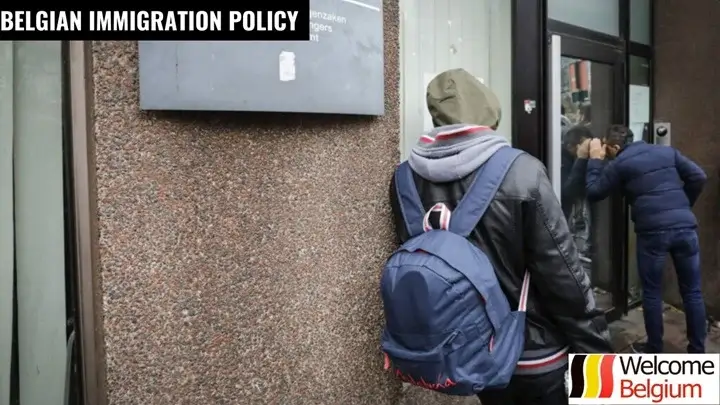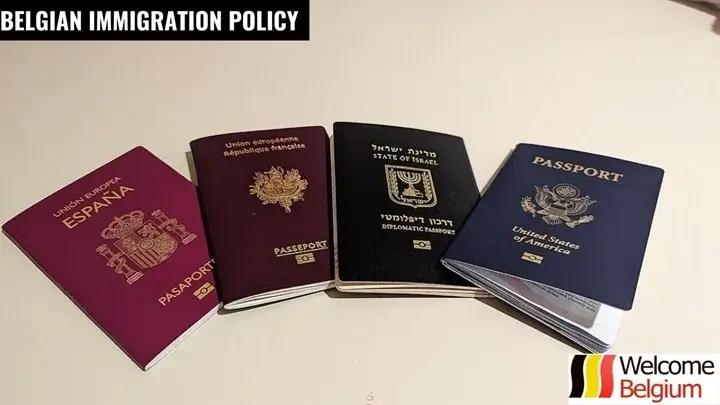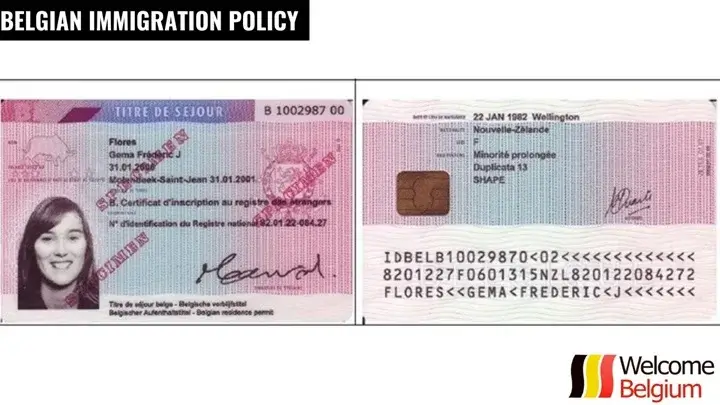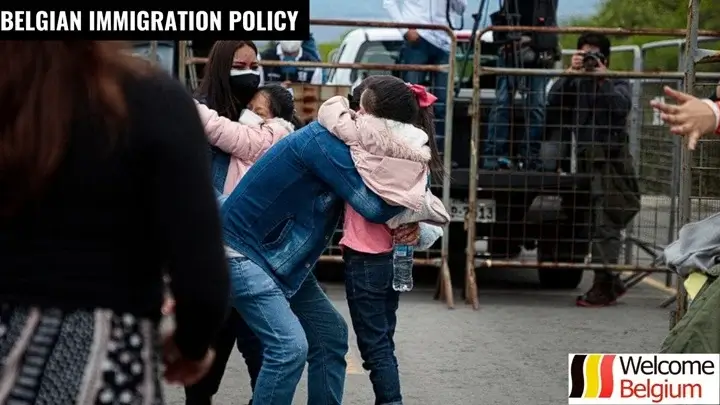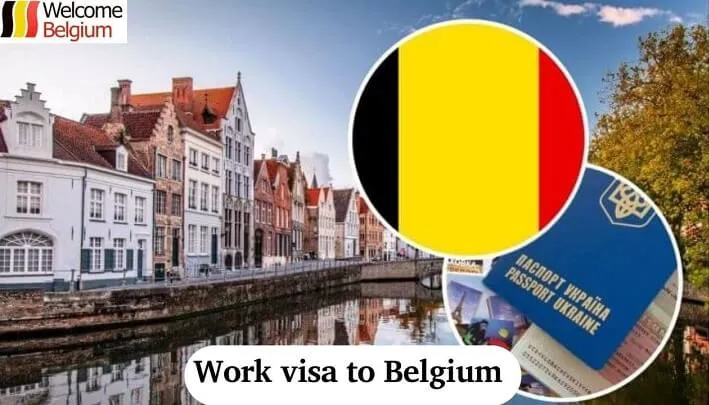Belgium has the most developed and flexible immigration policy in Europe, offering refugees and migrants a wide range of integration opportunities. The country has several types of status, including refugee status, subsidiary protection, and temporary protection for Ukrainian citizens. Belgium actively supports migrants by offering social assistance, health care, and labor market integration programs.
Belgian Immigration Policy Directions
Belgium’s immigration policy aims to manage migrant flows, provide protection to refugees and promote their integration into society. The country complies with its international obligations, including the UN Refugee Convention, and participates in the development of a pan-European migration strategy. Belgium is also actively developing its own measures to protect migrants’ rights and ensure social stability.
Main directions of immigration policy.
- Granting of asylum. Granting of refugee status under the 1951 Convention.
- Subsidiary protection. For individuals who do not meet the refugee definition but who require protection and migration from their country.
- Temporary protection. Introduction of a special status for citizens of Ukraine and other categories in crisis situations.
- Integration of migrants. Programs for the inclusion of refugees in the labor market and their social adaptation.
- Strengthening border control. Monitoring and managing migration flows through strengthening border control.
- Assistance to voluntary return. Providing support to migrants to return voluntarily to their home country.
Belgium’s immigration policy covers both protection measures and programs to integrate migrants into society, providing them with opportunities for employment and adaptation. Despite its strict borders, the country tries to maintain a balance between security and humanity.
Interesting fact:
Belgium is one of the first countries in the European Union to introduce programmes to quickly place refugees into employment through courses and language training.
Immigration Services of Belgium
The Belgian immigration system is designed to manage the flow of foreigners, including immigrants, refugees, and those seeking temporary protection. There are specialized services that handle paperwork, asylum, and other important issues. Understanding the Belgian immigration policies of each will help you navigate the process of applying for status.
Main services:
- Immigration Office (Office des étrangers). Reception and processing of applications for visas, asylum, extension of residence permits. Address of the immigration office: Anspahlaan 59B, 1000 Brussels. Telephone: +32 2 793 80 00. Website: http://www.dofi.fgov.be.
- Fedasil (Federal Agency for the Reception of Asylum Seekers). Organization of reception and accommodation of refugees, including temporary housing and social assistance. Office address: WTC Tower II, 1000 Brussels. Telephone: +32 2 213 44 11. Website of the migration office: http:// www. fedasil. be.
- CPAS (Public Center for Social Welfare). Providing social support, including financial assistance and access to health services. Address: throughout Belgium in every municipality. Telephone: depends on the local municipality. Website: http://www.cpas.be.
Each of the listed migration services plays its own role in the integration of immigrants and refugees in Belgium. Understanding their functions and contacting them in a timely manner will greatly simplify the process of paperwork and assistance.
Interesting fact:
Fedasil not only organises reception, but also helps with integration into the labour market by offering language courses and vocational training.
Immigration Laws
Belgian immigration policy is governed by a series of laws that provide the legal framework for migration and protection. These laws cover both international and national protection, aimed at regulating the flow of migrants, refugees and asylum seekers. Understanding the legal norms of Belgian immigration policy helps not only in matters of legalization of stay, but also in protecting the rights of foreign citizens.
Main federal legal acts:
- Law on the entry and stay of foreigners (15 December 1980). The main legislative act that regulates the entry, stay and deportation of foreigners on Belgian territory.
- Royal Decree (8 October 1981) Supplements the provisions of the 1980 Act and regulates practical aspects of immigration management, such as visa categories, requirements for obtaining and renewing them.
- Federal Act on Asylum and International Protection (12 January 2007) Establishes procedures for filing applications for asylum and international permanent protection and regulates the procedure for examining such applications.
- EU Regulation 604/2013 (Dublin III). Regulates the distribution of responsibility between EU countries for examining asylum applications. Within the framework of this regulation, Belgium determines which state must examine each application.
Knowledge of these legal acts is important for anyone planning to migrate to Belgium or who is already in the country. They provide clear rules that help both foreigners and government services to interact effectively. Compliance with these laws allows you to successfully complete the legalization process and avoid possible legal complications. Changes in legislation are possible, you need to monitor them on the official websites of the services.
Interesting fact
Belgium was one of the first countries to implement the “Dublin system” within the EU and migration policy, which regulates the responsibility of countries for examining asylum applications.
Immigrant statuses in Belgium
Belgium’s immigration policy regulates the various statuses that allow foreigners to legally reside and work in the country. Each status is designed for specific purposes and provides rights and obligations that correspond to the foreigner’s situation: employment, training, family reunification or permanent protection. Belgium strives to ensure transparent and clear conditions for all categories of immigrants. Understanding these statuses helps immigrants choose their path to legalization.
Main statuses of immigrants
- Work visa (Visa de travail). Granted to persons who have received an invitation from a Belgian employer and are planning to find employment.
- Residence permit for family reunification (Regroupement familial). Issued to family members of Belgian citizens or foreigners legally residing in the country.
- Student visa (Visa d’études). Intended for students enrolled in Belgian educational institutions.
- Refugee status (Statut de refugee status). Granted to persons who are persecuted in their country for political or other reasons.
- Subsidiary protection (Protection subsidiaire). Granted to persons who cannot obtain refugee status but need protection due to a real threat to life and safety in their home country.
Belgium’s national immigration policy provides a wide range of statuses to meet the different needs of foreign nationals, from students to refugees. Each status has clear conditions and requirements that help organize migration processes and protect the rights of newcomers. Contacting the right immigration service and understanding the legal context will make the process of paperwork and moving to Belgium much easier.
Interesting fact:
Belgium is one of the few countries that provides additional protection mechanisms for people who do not meet the refugee criteria.
Migration policy when obtaining a visa to Belgium
Belgium’s immigration policy offers a wide range of options for foreign nationals who wish to visit the country or stay for a long period of time. Depending on the purpose of their trip, immigrants can apply for different types of visas, which are governed by strict rules and procedures. Knowing the specifics of these visas can greatly facilitate the process of obtaining entry and residence permits.
List of types of Belgian visas:
- Short-term visas (Schengen visa). Type C (tourist visa): for stays up to 90 days for tourism, visiting friends or relatives. Type A (transit visa): for passengers waiting for a connection at the airport.
- Long-term visas. National visa type D: for stays longer than 90 days (study, work, etc.).
- Student visa. For studying at Belgian educational institutions.
- Work visa. Necessary for searching and hiring for a job in Belgium.
- Family reunification visa. For family members who wish to join a relative already in Belgium.
Understanding Belgium’s immigration policy and the specifics of the various visas can make the process of entering and staying in the country much easier. Each type of visa has its own requirements and conditions that you need to know when applying. It is important to prepare all the necessary documents in advance and follow the established procedures to successfully obtain a visa.
Advice:
Please be sure to check the Belgian consulate or embassy website for current requirements before submitting your application, as rules may change.
Social assistance for immigrants
Belgian immigration policy provides a wide range of social support for immigrants and refugees. This assistance includes financial, medical and educational support aimed at improving living conditions and successful integration into society. Municipalities play an important role in the distribution of assistance, coordinating the process of receiving social benefits.
Financial assistance
As part of Belgium’s immigration policy, refugees and immigrants can receive monthly payments that depend on their status and family composition. For example, an adult can receive around 200-250 euros per month, and a child 100-150 euros. The amount depends on the specific municipality and the conditions of stay.
To receive these benefits, you must contact your local Centre for Public Welfare (CPAS) after applying for status. The address and contact details of the CPAS will vary depending on where the immigrant lives, but information can be found at http://www.cpas.be.
Medical care
Immigrants and refugees are entitled to free or subsidised health care within the Belgian social security system. Health care includes emergency treatment, diagnostics and basic health care. This is the basis of European migration and common policy.
In order to access health care, refugees must register with the health insurance system. If necessary, they can apply to CPAS for preferential access to health care.
Housing
Belgium provides temporary housing for refugees through a system of temporary accommodation centres run by Fedasil. Accommodation is provided while the asylum application is being processed.
To apply for housing, please contact the regional Fedasil offices, for example at WTC Tower II, 1000 Brussels, phone +32 2 213 44 11. You can also find more information on the website http://www.fedasil.be.
Education
Refugee children have the right to free education in Belgian state schools. Adults are offered free language courses, as well as vocational courses for integration into the labour market. To enrol in courses, contact your local educational institution or regional integration centre. Information can be found at http://www.integration.be.
Consultations and assistance in employment
Belgium offers various programmes for the employment of immigrants, including specialised language courses and vocational training. It is important to contact regional employment offices such as Actiris (for Brussels), Forem (for Wallonia) or VDAB (for Flanders).
Contact details can be found on their official websites:
- http://www.actiris.brussels.
- http://www.leforem.be.
- http://www.vdab.be.
Belgium was one of the first countries to introduce a centralised system of distributing social assistance to refugees, including employment programmes.
Immigration policy for citizens of Ukraine
Belgium’s immigration policy towards Ukrainian citizens has acquired particular importance in light of current events. Since the beginning of the conflict, many Ukrainians have sought safety and opportunities for a new life in the European Union, and Belgium has taken active measures to help these people. As a result, special programs have been developed to provide support and protection for Ukrainian refugees.
Peculiarities of immigration for citizens of Ukraine
- Temporary protection status. Ukrainian citizens can receive temporary protection in Belgium, which includes the right to reside and work. This international protection is valid until March 4, 2025 and can be extended if necessary.
- Simplified procedure for obtaining. Simplified procedures for obtaining refugee status are provided for Ukrainians, which allows for faster processing of documents.
- Access to social assistance. Ukrainian refugees can count on various types of social assistance, including financial support and medical services.
- Education for children: Refugee children have the right to education in Belgium, which ensures that they can integrate and acquire the necessary knowledge.
- Registration in municipalities. All citizens of Ukraine must register with local authorities to obtain the necessary documents and status.
The Belgian immigration policy for Ukrainian citizens is aimed at creating a safe and supportive environment. This policy allows Ukrainians not only to find temporary shelter, but also to build a new life, providing access to education, social assistance and employment opportunities. By registering in time, you can receive all the benefits and international protection due to the laws of European migration.
Interesting fact
Belgium has become one of the first EU countries to introduce temporary protection for Ukrainian refugees, demonstrating its willingness to support people seeking refuge from war.
Frequently asked questions
How to get temporary protection in Belgium?
Ukrainian citizens can obtain temporary protection by submitting an application to local authorities within 8 days of arrival in the country. It is important to have confirmation of refugee status in Ukraine. Documents are submitted to the Immigration Service or at the border.
What rights do refugees have in Belgium?
Refugees have the right to access health care, education and financial assistance. They can also work in the country and receive advice on integration into the labour market.
Where to apply for social assistance?
Social assistance is provided through Community Welfare Assistance Centres (CPAS). To receive assistance, you must register and apply at your local CPAS, which is located in your area.
How long does temporary protection last?
Temporary protection for Ukrainian citizens is valid until March 4, 2025, and can be extended if necessary. Refugees can also renew their status by visiting their local municipality.
Are there any special programs for refugee children?
Yes, refugee children have the right to free education in Belgian public schools, as well as to participate in language courses and integration programmes that help them socialise in their new society.
Can I work in Belgium if I have temporary protection?
Yes, refugees with temporary protection have the right to work in Belgium. This allows them to integrate into society more quickly and become financially independent.

